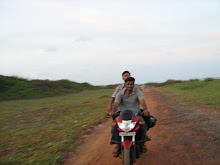I was searching the net for something and I came across saying the word mother in different languages. I have given the list below. I have also inferred something from the words. Let us check the list first…
- Hindi Maa, Maji
- English Mom, Mummy, Mother
- German Mutter
- Urdu Ammee
- French Mere, Maman
- Italian Madre, Mamma
- Portuguese Mãe
- Albanian Mëmë
- Belarusan Matka
- Serbian Majka
- Dutch Moeder; Moer
- Estonian Ema
- Frisian Emo, Emä
- Greek Màna
- Hawaiian Makuahine
- Afrikaans Moeder, Ma
- Arabic Ahm, Um
- Bosnian/ Bulgarian Majka
- Croatian Mati, Majka
- Danish Mor
- Judeo/Spanish Madre
- Latin Mater
- Macedonian Majka
- Norwegian Madre
- Persian Madr, Maman
- Polish Matka, Mama
- Punjabi Mai, Mataji
- Romanian Mama, Maica
- Russian Mat’
- Serbian Majka
- Slovak Mama, Matka
- Spanish Madre, Mami
- Swedish Mamma, Mor, Morsa
- Swiss/German Mueter
- Ukrainian Mati
- Urdu Ammee
- Welsh Mam
- Yiddish Muter
- Tamil Amma
- Malayalam Ammey
- Telugu Amma
As you can see, all the words related to mother has a syllable in common. “m” or “mm” is the syllable.
I feel there is some deep relation with the word mother and the syllable.
In Arabic, The term used to refer society is “umma(th)” . It comes from the root word “um” which means Mother. Denoting that Mother is the root for any society. Universal Truth.
Hinduism have a spiritual word which is used for meditation. It goes like “om”. Hindu philosophers say that it is the beginning and end of everything. Even today, in many meditating classes, they use the sound of deep pronunciation of “omm” .
I feel there exists a strong bond between the syllable “mm” and the universe. Those who has knowledge about it can clear it.
Thanks in Advance…








